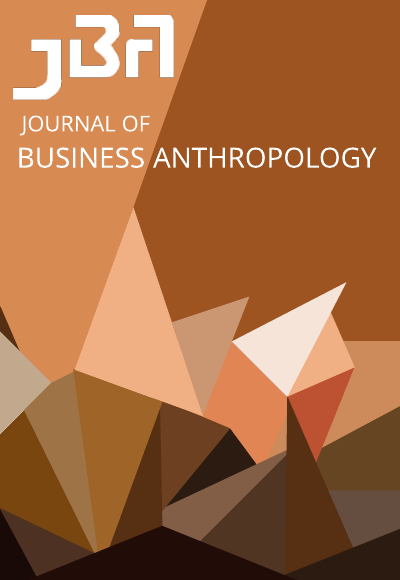What is Business Anthropology? An Ethnographic Study of an Explorative Workshop
DOI:
https://doi.org/10.22439/jba.v10i1.6328Abstract
The anthropology of organizations is always political; it might take place over shorter, as well as longer, time spans and in singular, pluralistic, or even virtual, settings. This paper addresses such issues by describing and analyzing fieldwork experiences of an academic workshop, which took place at the Copenhagen Business School in 2012 under the title of ‘The Business of Ethnography’. The purpose of the workshop was to create a forum in which to discuss business anthropology as an emerging field or sub-discipline of anthropology. The paper considers three conditions (reflexivity, familiarity, and temporality) which give the mise en abyme configuration of the field – the site where action happens – and pose significant challenges to contemporary business ethnographers. We argue that by acknowledging these three factors one can advance easier towards the ambitious goal of rendering organizational interactions intelligible and meaningful.
Downloads
Published
Issue
Section
License
Authors who publish with this journal agree to the following terms:
- Authors retain copyright and grant the journal right of first publication with the work simultaneously licensed under a Creative Commons Attribution License that allows others to share the work with an acknowledgement of the work's authorship and initial publication in this journal.
- Authors are able to enter into separate, additional contractual arrangements for the non-exclusive distribution of the journal's published version of the work (e.g., post it to an institutional repository or publish it in a book), with an acknowledgement of its initial publication in this journal.
- Authors are permitted and encouraged to post their work online (e.g., in institutional repositories or on their website) prior to and during the submission process, as it can lead to productive exchanges, as well as earlier and greater citation of published work (See The Effect of Open Access).



